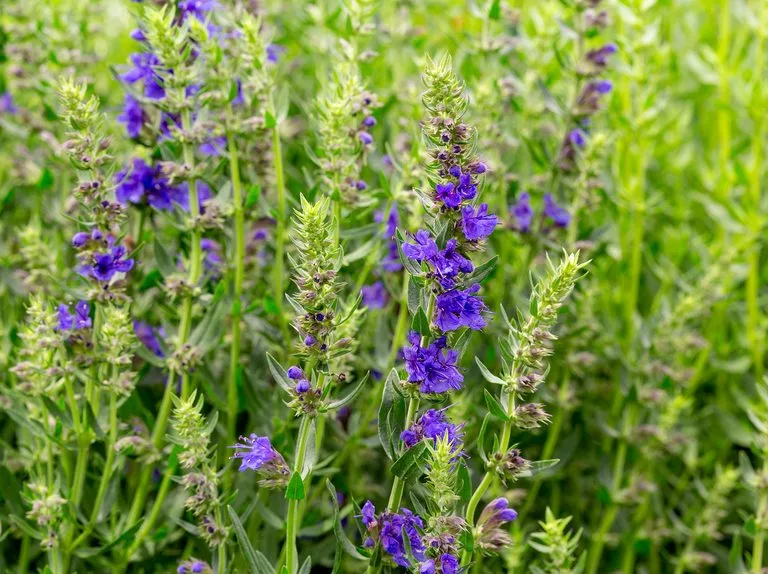Hyssop

Hyssop (Hyssopus officinalis) is a herb with a long history of use in traditional medicine, particularly in Mediterranean and Middle Eastern cultures. While its potential health benefits are often mentioned in traditional practices, it’s important to note that scientific research on hyssop is limited, and more studies are needed to establish its effectiveness. Here are some of the commonly suggested benefits of hyssop:
- Respiratory Health:
- Hyssop has been traditionally used to address respiratory issues. It is believed to have expectorant properties, which may help in clearing mucus from the respiratory tract. It has been used to alleviate symptoms of conditions like coughs, colds, and bronchitis.
- Antimicrobial Properties:
- Some studies suggest that hyssop may have antimicrobial properties, making it potentially useful in fighting certain infections. The essential oil of hyssop, in particular, has been investigated for its antibacterial and antiviral activities.
- Anti-Inflammatory Effects:
- Hyssop contains compounds that may have anti-inflammatory effects, which could be beneficial for conditions involving inflammation.
- Digestive Health:
- Hyssop has been traditionally used to address digestive issues, including indigestion and gas. It is believed to have carminative properties that may help in reducing gas and bloating.
- Antioxidant Activity:
- Like many herbs, hyssop contains antioxidants that may help neutralize free radicals in the body. Antioxidants play a role in protecting cells from oxidative stress.
- Immune System Support:
- Some traditional practices suggest that hyssop may support the immune system. However, more research is needed to understand the specific mechanisms involved.
- Mood and Relaxation:
- In traditional herbal medicine, hyssop has been used for its potential calming effects on the nervous system. It is thought to have mild sedative properties that may promote relaxation.
- Skin Health:
- Hyssop oil has been used topically for various skin conditions. Its antiseptic and anti-inflammatory properties may contribute to its potential benefits for the skin.
It’s crucial to note that while hyssop may offer potential benefits, individual responses can vary, and more research is needed to fully understand its mechanisms of action and effectiveness. As with any herbal remedy, it’s advisable to consult with a healthcare professional before using hyssop, especially if you are pregnant, nursing, have underlying health conditions, or are taking medications. Additionally, be sure to use hyssop from reputable sources and in appropriate forms, as essential oils and extracts can be potent and may have different properties than the whole herb.
